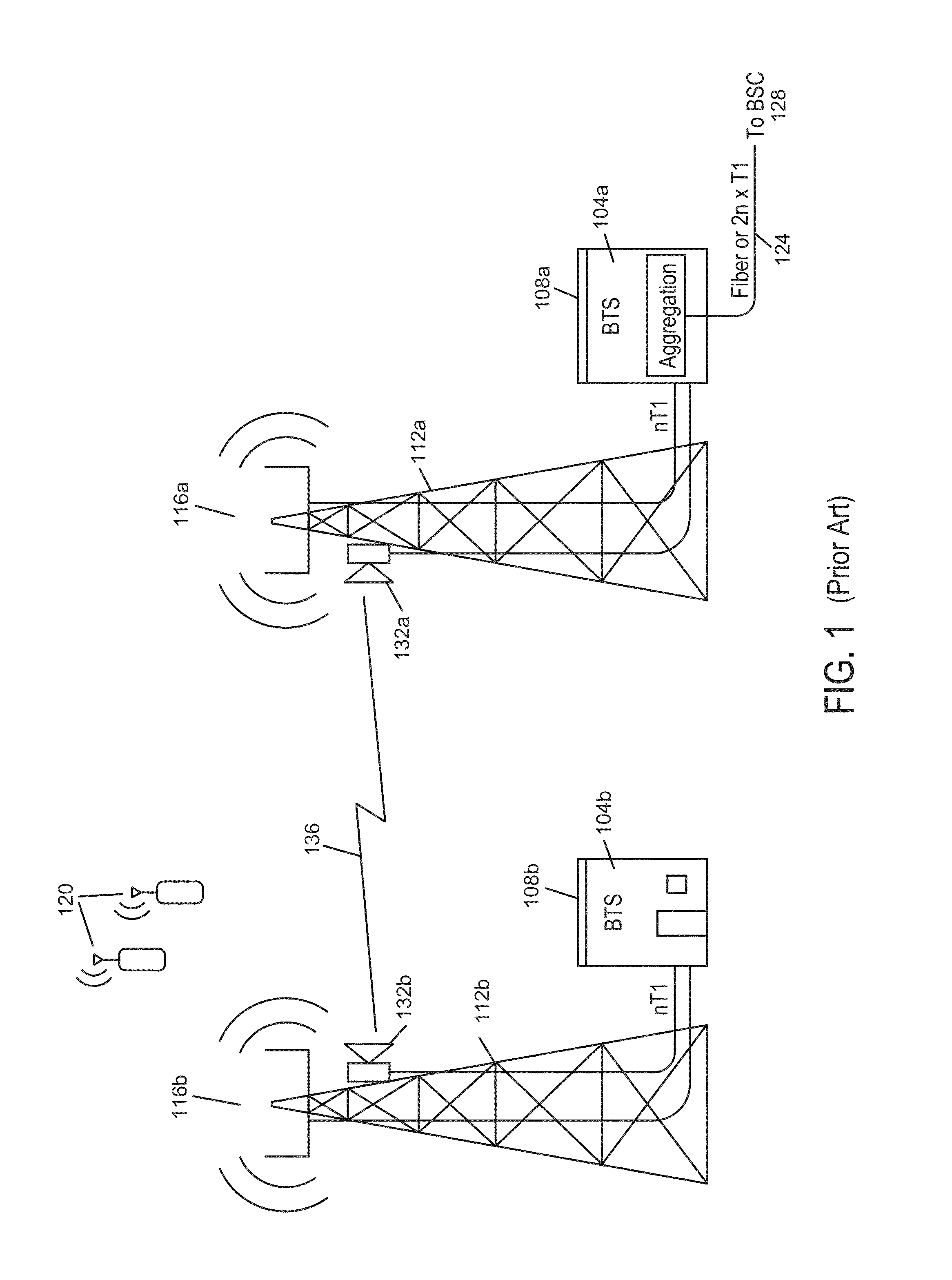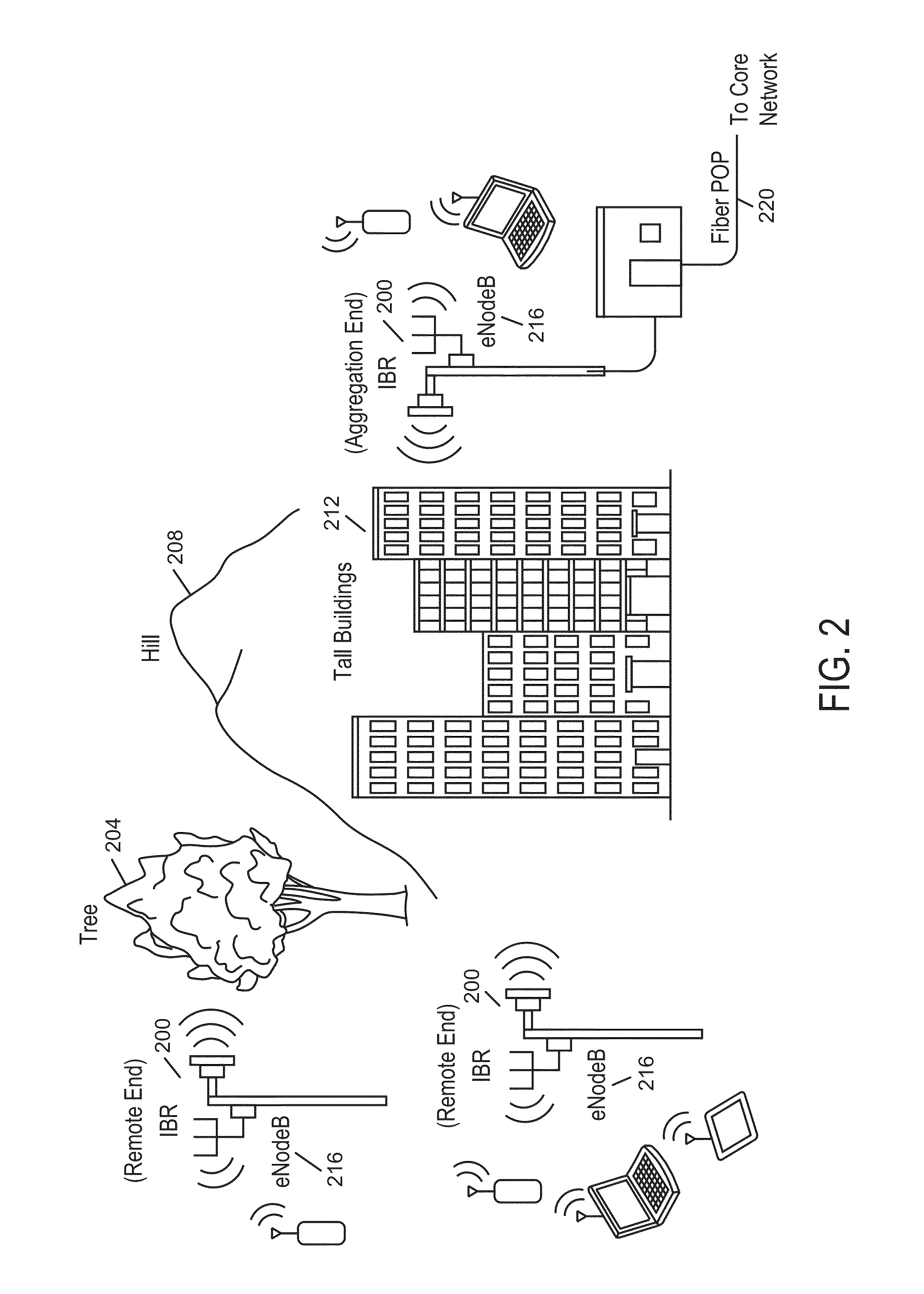Backhaul radio with extreme interference protection
a backhaul radio and interference protection technology, applied in the field of data networking, can solve the problems of cellular base stations, inability to connect all high-band data networking points with optical fiber at all times, and access points inevitably become very high data bandwidth
- Summary
- Abstract
- Description
- Claims
- Application Information
AI Technical Summary
Benefits of technology
Problems solved by technology
Method used
Image
Examples
Embodiment Construction
[0086]FIG. 2 illustrates deployment of intelligent backhaul radios (IBRs) in accordance with an embodiment of the invention. As shown in FIG. 2, the IBRs 200 are deployable at street level with obstructions such as trees 204, hills 208, buildings 212, etc. between them. The IBRs 200 are also deployable in configurations that include point to multipoint (PMP), as shown in FIG. 2, as well as point to point (PTP). In other words, each IBR 200 may communicate with more than one other IBR 200.
[0087]For 3G and especially for 4th Generation (4G), cellular network infrastructure is more commonly deployed using “microcells” or “picocells.” In this cellular network infrastructure, compact base stations (eNodeBs) 216 are situated outdoors at street level. When such eNodeBs 216 are unable to connect locally to optical fiber or a copper wireline of sufficient data bandwidth, then a wireless connection to a fiber “point of presence” (POP) requires obstructed LOS capabilities, as described herein....
PUM
 Login to View More
Login to View More Abstract
Description
Claims
Application Information
 Login to View More
Login to View More - R&D
- Intellectual Property
- Life Sciences
- Materials
- Tech Scout
- Unparalleled Data Quality
- Higher Quality Content
- 60% Fewer Hallucinations
Browse by: Latest US Patents, China's latest patents, Technical Efficacy Thesaurus, Application Domain, Technology Topic, Popular Technical Reports.
© 2025 PatSnap. All rights reserved.Legal|Privacy policy|Modern Slavery Act Transparency Statement|Sitemap|About US| Contact US: help@patsnap.com



